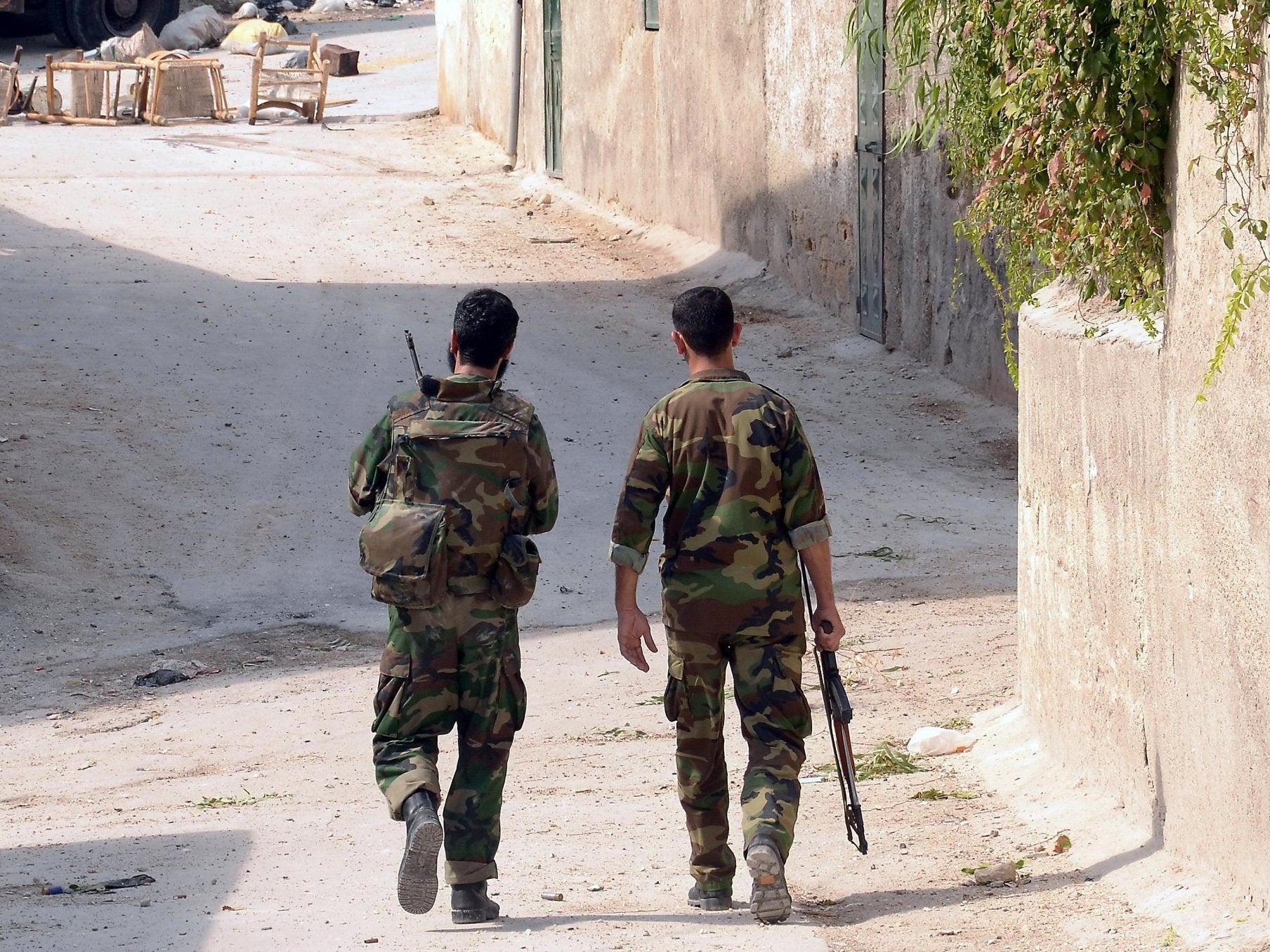High-ranking Syria intelligence official arrested in Germany on charges of torture
Two men arrested for involvement in torture of anti-government activists early in uprising

Your support helps us to tell the story
From reproductive rights to climate change to Big Tech, The Independent is on the ground when the story is developing. Whether it's investigating the financials of Elon Musk's pro-Trump PAC or producing our latest documentary, 'The A Word', which shines a light on the American women fighting for reproductive rights, we know how important it is to parse out the facts from the messaging.
At such a critical moment in US history, we need reporters on the ground. Your donation allows us to keep sending journalists to speak to both sides of the story.
The Independent is trusted by Americans across the entire political spectrum. And unlike many other quality news outlets, we choose not to lock Americans out of our reporting and analysis with paywalls. We believe quality journalism should be available to everyone, paid for by those who can afford it.
Your support makes all the difference.Two former members of Syria’s secret police have been arrested in Germany on suspicion of torturing anti-government activists early in the country’s uprising.
The men were arrested in Berlin and the southwestern state of Rhineland-Palatinate on Tuesday, according to prosecutors. They had been living in Germany since 2012.
Anwar R, 56, was described as a high-ranking member of Syria’s General Intelligence Directorate, and is accused of responsibility for the torture of detainees at the al-Khatib detention facility in Damascus between 2011 and 2012. Forty-two-year-old Eyad A is accused of being part of a unit that brought detainees to the infamous prison.
The arrests could pave the way for the first criminal trials of senior members of Bashar al-Assad’s regime anywhere in the world, and would represent a significant milestone in efforts to hold the government accountable for well-documented crimes against humanity.
“The arrests are hugely significant for ensuring justice for victims of war crimes, crimes against humanity and other serious human rights abuses in Syria,” Kristyan Benedict, Amnesty International’s crisis campaigns manager, told The Independent.
“We are now a huge step closer to seeing senior members of Assad’s torture network being properly held to account in a court of law,” he added.
German federal prosecutors who made the arrests heard evidence from six survivors of torture, and were helped by research from the European Centre for Constitutional and Human Rights (ECCHR), which investigates and seeks accountability for crimes committed by all parties in the conflict.
Wolfgang Kaleck, the ECCHR’s general secretary, said the survivors who helped with the investigation would stand as witnesses in any future criminal trial.
“The arrest shows once again that Germany is taking the fight against impunity for torture in Syria seriously,” he said in a statement. “It sends a very important message to survivors of Assad’s system of torture. Without justice, there will be no lasting peace in Syria.”
Since the 2011 uprising against Mr Assad’s government began, conservative estimates suggest that upwards of 17,000 people have died in government custody, either due to torture, execution or lack of medical care. Tens of thousands more have been subjected to torture and survived, according to Amnesty International.
The al-Khatib detention facility was run by the General Intelligence Directorate, for whom Anwar R was said to be an “investigator”, which would have made him directly responsible for overseeing the torture of detainees.
A 2015 report by Human Rights Watch found that the facility held as many as 1,000 people at a time. Fahed al-Mahmoud, who worked there for seven and a half years before defecting, told the rights group that “after [the uprising] started, six to seven people might die per day [in the facility] … not less than two to three. One day … [in September 2012] 11 detainees died.”
Join our commenting forum
Join thought-provoking conversations, follow other Independent readers and see their replies
Comments